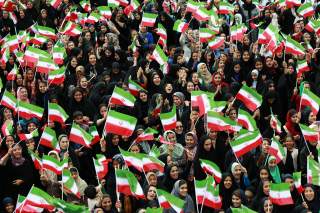Don't Rejoin the Iran Deal, Fix It
Reentering the Iran nuclear deal and dropping U.S. sanctions, as some have recommended, will only increase the risks of Iran developing nuclear weapons.
Finally, rejoining the JCPOA misses a critical opportunity to work together to fix the flaws in the JCPOA and reach a supplementary or new agreement that ensures that Iran does not continue on a trajectory of maintaining and expanding its nuclear weapons capabilities, including the development of nuclear-capable long-range ballistic missiles. The most likely endpoint of the JCPOA is an Iran that in about a decade can quickly build nuclear weapons mounted on intermediate-range and intercontinental ballistic missiles, lacks an inspection regime that can ensure that Iran does not have undeclared nuclear facilities and materials, and has a greatly expanded conventional armed forces and ballistic missile arsenal. Presidential candidates and policymakers alike should reconsider the implications of walking that pathway if they want to adopt a serious foreign-policy platform that protects U.S. national-security interests. Far better to use the growing leverage to build domestic and international support for a new agreement which fixes the deficiencies in the current deal.
David Albright, a physicist, is the founder and president of the Institute for Science and International Security where Andrea Stricker is a senior policy analyst.
Image: Reuters

